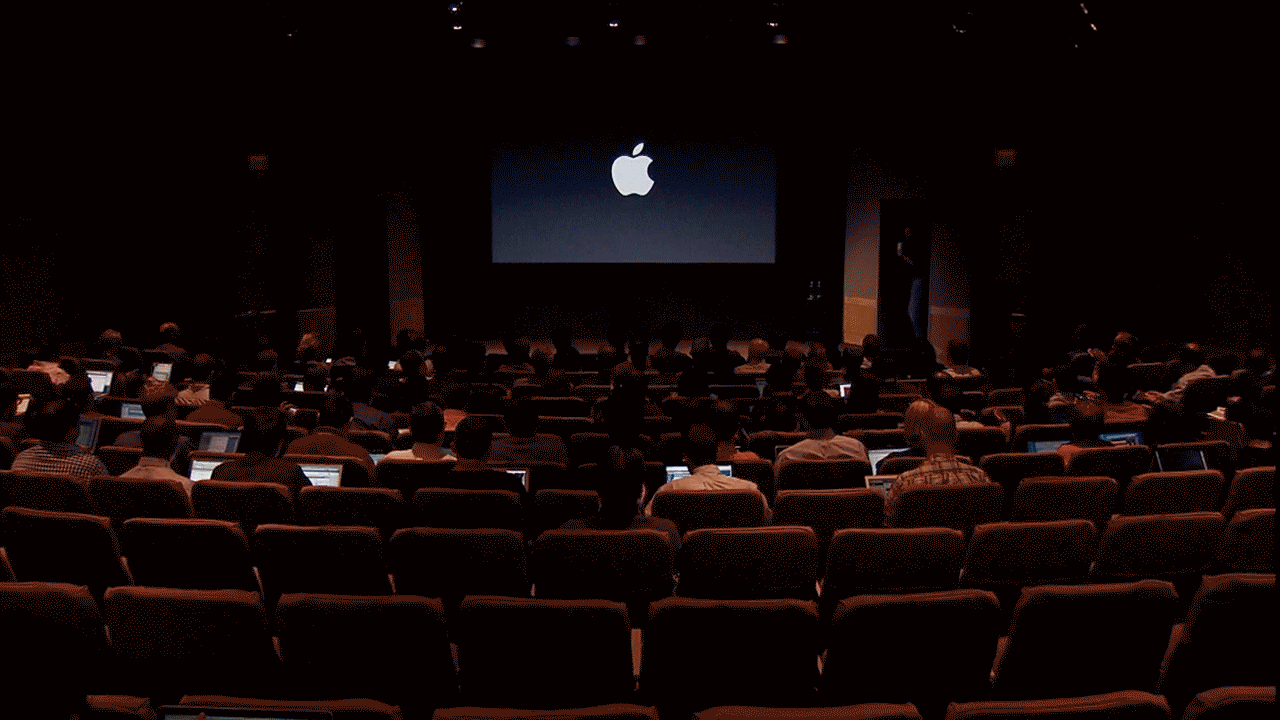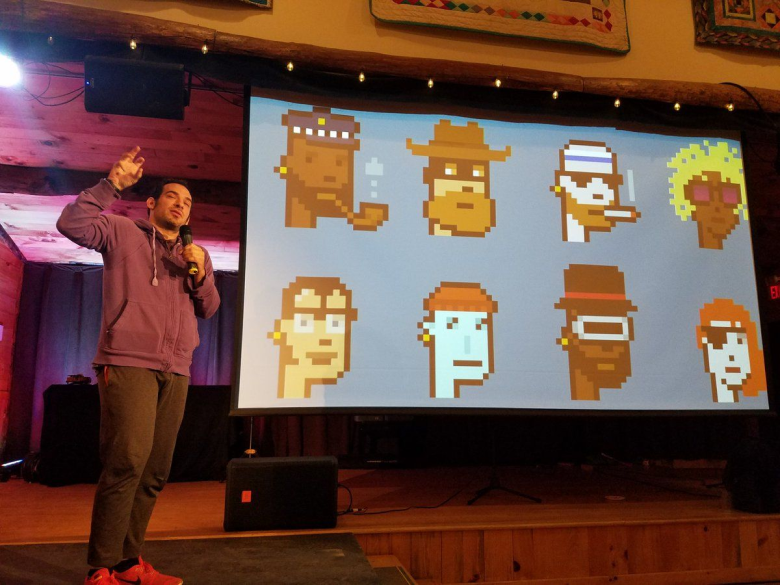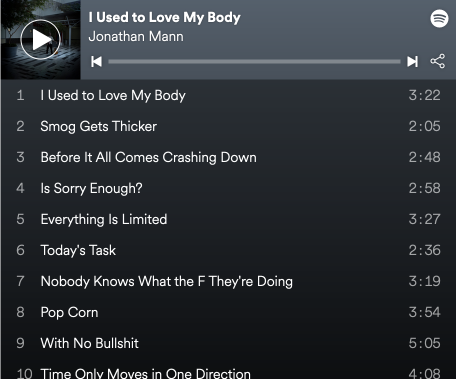What is Song A Day?
A new song, every day. Forever.
Song A Day is many things. It's about *time.* I measure the days by songs.
Song A Day is a journal. It is quite literally a record of my creative life.
Song A Day can be a burden, a joy, a challenge, a bore - all at the same time.
Above all, Song A Day is an invitation to make stuff.
Sometimes it's good stuff, sometimes it's bad stuff, but the making is the most important part.
Who is Jonathan Mann?
I started writing songs when I was 12. I wrote my first song on the back of a pizza box. It wasn't a very good song.
I feel really lucky though, because from that age onwards, I had a singular focus in my life: I wanted to write songs. I couldn't really sing, and I barely played guitar. It took me a long time before I made anything good. But none of that mattered: Writings songs is the only thing I have ever wanted to do.
I went to college at Bennington where I started learning how to record myself. My friend Will and I stayed up all night and wrote and recorded 40 songs, each forty seconds long. My friend Thomas and I staged a giant rock opera calledThe Last Nympho Leprechaun. From 2003-6 I wrote a song almost every week for the online songwriting competition,SongFight.org.
In grad school at CalArts I made the world's first rock opera based on Super Mario. It was featured on G4, the premiere gaming channel of the aughts (iykyk).
Subsequently, I got an internship at G4, and ended up writing a bunch of songs for different shows on the channel, culminating in the musical episode of their flagship review show, X-Play.
The Mario Opera on G4
X-Play (The Musical) on G4
History
One of my rules about Song A Day is that I will never chase trends. I will only write songs about things I really, truly want to write about.
As it happens, occasionally my interests overlap with the zeitgeist, and that's when viral songs happen. What follows is a look at the viral songs and milestones of Song A Day.
The Rachel Maddow Show
The very first Song A Day to go viral was about Paul Krugman, the Nobel Prize winning economist. I ended up singing the song live on MSNBC's Rachel Maddow show
Steve Jobs Danced To My Song
During the first few years of Song A Day, I was making my living entering online video contests.
One of the contests I entered was a jingle competition for Microsoft's recently launched search engine, Bing. The Bingle contest was simple: Make the best jingle and video showcasing Bing and win a $500 American Express gift card. It wasn't a lot of money but the due date was just around the corner, and the contest would be decided by judges, not votes (these were my two biggest requirements for entering a contest) so banged out a song in under an hour and in another 45 minutes had posted my video. Another day, another contest.
About a week later, I found out that I won. On the one hand, this was surprising, because I thought that my song and video sucked, but on the other hand, my closest competition was a man staring into the camera singing, “You've got to Bing it Bing it, You've got to Bing it Bing it.”
A few days later, a friend linked me to an article on TechCrunch. MG Siegler, a preeminent tech writer, had written a scathing article with the headline:

Now, I'm quite used to being made fun of on the internet. It comes with the territory. The best thing you can do is ignore these types of comments. This was different though. TechCrunch was so high profile and MG was such a well known commentator that I felt like it begged a response.
So I wrote a song about him, using text from his post as lyrics: “Sure, the song will get stuck in your head/ but so does the sound of seals barking or cows dying.”
I posted the song and sent it to him, and within minutes, my song-response was up on TechCrunch. He loved it even though (or maybe because) it made fun of him. This led to a strange relationship between me and TechCrunch — I was unofficially their official songwriter. Anytime I wrote about something tech related, I'd send it to MG and most of the time, he'd post it. I played at their annual “Crunchies” award show. I even learned that TechCrunch's founder, the controversial Michael Arrington, used my MG Siegler song as his ringtone for a few months.
So. Fast forward to 2010. I had just learned that I lost a big video contest, and I was feeling pretty down. It also happened to be the eve of Apple's “Antenna-Gate” press conference. The anti-Apple hype was at a fever pitch, and I thought the whole non-story was ridiculous. I decided to write a song defending Apple. I hoped that MG would post it, and maybe I'd get some decent traffic. I wrote the song in about 2 hours and spent another hour on the video. I posted the song, sent it to MG and went to bed.
The next morning I woke to a flurry of activity in my inbox, including an email that appeared to be from Apple. I read the email and decided it was fake — someone was trolling me. I was in the shower when my phone rang. It was Apple PR. For real. Could they use my video to open the press conference, they wondered? Um, yes. Sure, uh, how should I send it to you? Jesus Christ.

Later that morning, I watched online as the song and video I had made in 3 hours the night before played before an audience of journalists at Apple HQ. Then Steve Jobs came out on stage and said, “Thanks for coming. We found that on YouTube this morning and couldn't help but want to share it.” It was one of the most surreal moments of my life. I heard later from the PR rep that Steve had been dancing off stage as the song played. If you watch the video of the event, there's a few seconds, right as my song ends, that you can see him bopping his way on to the stage.

Look closely. He's dancing.
A few days after the keynote, I got commissioned to write a birthday song for Steve Wozniak. I was invited to his 60th birthday party, where I met the cofounder of TEDMED, who commissioned me to write a birthday song for the founder of TED, Richard Saul Wurman. The following year TEDMED had me back — this time performing songs written on-the-fly about the conference.
This practice, fun songs written on the spot for conferences, became the majority of my income, right up until the pandemic happened.
Hitting Song 1000
In the lead up to song number 1,000, I launched a successful Kickstarter:
I raised just over $10,000 so that I could hire a bunch of my friends to come and do nothing but make music with me for a whole month. We had a blast.
The Break Up Song (and Anderson Cooper)
My ex and I had been together for five years.
Eventually, we knew we had to break up, and it was really sad but amicable. At some point, when we were broken up by still living together, I suggested we make a song together, announcing to all our friends and loved ones that we were splitting up. I didn't want to have to explain it over and over to everyone. We'd just make the video, post it to Facebook, and then everyone would know.
The song instantly went insanely viral on Facebook. It was hilarious. Over 1 millions views in a few days.
After we broke up for good, I finally moved out and got my own place. I couldn't afford a Brooklyn apartment on my own, and I was having a really hard time finding a roommate. So of course I wrote another song:
After this song, I appeared on Anderson Cooper's short lived daytime talk show.
My Grandma Died And My Kids Were Born
These milestones speak for themselves...
Hitting Song 2000
I got to Song A Day #2000 right around the time my first child was born. This is the closest I've ever come to quitting. It seemed like the right time: I had an infant son. I was about to hit 2000. It just felt almost cosmic, in a way.
But then I woke up on day 2001 and just kept going.
For Song #2000, I made a video out of all my previous videos. 2000 videos in one.
The Hillary Shimmy Song
After the first debate between Hillary and Trump, I made this song that went incredibly viral - one of my fastest spreading songs ever. It got to 2 million views in a few hours.
One of Hillary's dark money PACs even purchased the rights to the song, and they used it in a Snapchat filter they released the day of the election. John Legend posted a video of himself on Twitter using it. I'm pretty sure I cost her the election.

Songonauts!
In 2016, I hooked up with a really amazing fiction podcast called The Truth to make Songonauts, a podcast about a down-on-their-luck band that finds a magical drum machine that transports them *inside* their songs.
To this day, it's one of the things I'm most proud of having made. It's 8 episodes, each about 20 minutes long. If you like 80s cartoons, fictional bands and fun, you should definitely give it a listen!
Discovering Digital Scarcity
I was playing at a conference in rural Ontario, when I saw a talk by Ethan Buchman that opened my eyes to the possibilities of art and the blockchain.
As soon as I got home, I sent this tweet:
The "weird project idea" I had way back then is the very project that you are thinking about becoming part of, today! As a result of this tweet, my friend Boris helped me set up Metamask and sent me my first bit of eth. Then, he told me about CryptoPunks and I wrote a song about it the very next week:
(note: this song will be among those available during the Big S.A.D Drop)
It was obvious to me from the moment I saw CryptoPunks that I needed to build something similar with my songs. Music, maybe more than any other medium, has become so devalued in our culture that even bands that "make it" can still struggle to make ends meet through their music alone. You have to hustle from 1000 different angles just to cobble together a living. That's where I've been for the entirety of my career.
Enter NFTs.
I didn't know all the details, but I knew, right from the very beginning, that digital scarcity could unlock a whole new avenue for musicians.
In late 2017 I launched something called The Initial Song Offering in an ill fated attempt to raise the funds to hire solidity developers. I gave talks all around NYC and beyond about NFTs, pitching this project to different people, with varying degrees of success.

October 2017, giving my very first talk about Song A Day NFT - showing people CryptoPunks
Throughout this process, I also became part of a small cohort of folks obsessed with the idea that would become NFTs.
Along with Matt Condon, I started the very first NFT focused podcast in June of 2018. In October of that year, I performed at Devcon in Prague, the largest Ethereum gathering in the world. I even got Vitalik Buterin to sing:
Then I did some hosting duties and performed at ETH Denver in February of 2019:
Once the long crypto winter began, and especially once COVID hit, I almost abandoned the idea entirely. My income took a huge hit, I was home with my 2 small children, and I had no extra time to devote to it. Everything stalled.
But then things started to pick up again, and I decided to launch the pre-sale, minimum viable version of the project on OpenSea's shared storefront contract. No solidity devs needed!
Year 1 sold out in 30 min. The funds from that sale (as well as my side project The Fuckin Trolls) have given me the means to finally bring this project to life, exactly as I envisioned it all those years ago.
Baby Yoda
My most viewed, most listened to song ever. Went insanely viral on TikTok. 4.7 million streams on Spotify and over 9 million views on YouTube. For a while it was the #1 Viral song on Spotify in a bunch of countries. Most incredibly, I get texts from friends and folks from all over, saying that they overhear their kids and other kids singing it constantly. It truly was a phenomenon.
I Used to Love My Body
Periodically, I go back through my archive of songs to find the hidden gems. Then I pick them up again, dust them off and work them and rework them until they are as good as I can possibly make them. The last time I did this was in 2019, with this album. I still think it's some of my strongest work.

As It Happens
Just as the pandemic hit, I released one season of a podcast that explores the process of making a song from start to finish. I've seen a lot of different approaches to the task of pulling back the curtain on the creative process, and I was determined with this series to make it really dynamic, and fascinating to listen to.
Each episode covers the creation of a song from end to end, but I kept each episode to under 20 minutes. It's another project that I'm really proud of.
